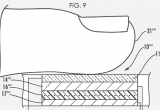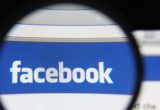Biometric privacy case against Google dismissed by Illinois judge
02 January, 2019
category: Biometrics, Corporate, Government
As 2018 came to a close, a judge dismissed the case alleging Google had violated the Illinois Biometric Information Privacy Act (BIPA) by collecting and storing facial biometrics without user consent. Under debate was Google’s use of facial recognition software that scanned images stored in Google Photos in an attempt to identify subjects thus automating the organization of images.
The Google ruling will certainly be considered in at least two other high-profile biometric privacy cases currently pending against Facebook and Snapchat.
According the original lawsuit text, “Google has created, collected and stored, in conjunction with its cloud-based “Google Photos” service, millions of “face templates” (or “face prints”) – highly detailed geometric maps of the face – from millions of Illinois residents, many thousands of whom are not even enrolled in the Google Photos service. Google creates these templates using sophisticated facial recognition technology that extracts and analyzes data from the points and contours of faces that appear in photos taken on Google “Droid” devices and uploaded to the cloud-based Google Photos service. Each face template that Google extracts is unique to a particular individual, in the same way that a fingerprint or voiceprint uniquely identifies one and only one person.”
The case, Rivera v. Google, 16-cv-02714, U.S. District Court, Northern District of Illinois (Chicago), was originally filed in March of 2016. On December 29, 2018 it was dismissed by U.S. District Judge Edmond E. Chang in Chicago. Citing a lack of concrete injuries to the plaintiffs, the judge ruled that the case could not be prosecuted under the Illinois act.
This question in many of these BIPA cases has centered on this: Can a company be held accountable if plaintiffs incurred no real damages? In other words, is the simple act of violating the law sufficient for the judge to award financial compensation to the plaintiffs. In the Google case and others, judges have determined that answer is no, though the BIPA regulation does not preclude it.
The Google ruling will certainly be considered in at least two other high-profile biometric privacy cases currently pending against Facebook and Snapchat.
According to Gizmodo, both Google and Facebook supported amendments to BIPA that would have exempted photos but to date these amendments have not succeeded.




